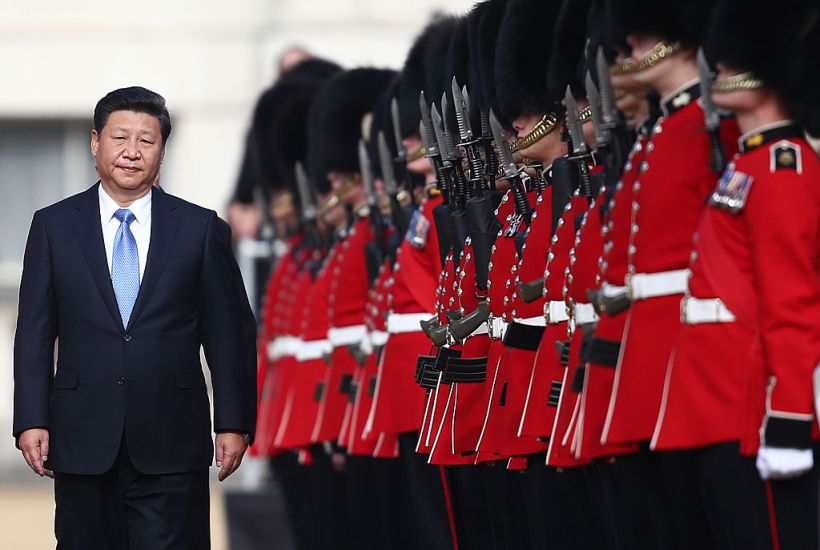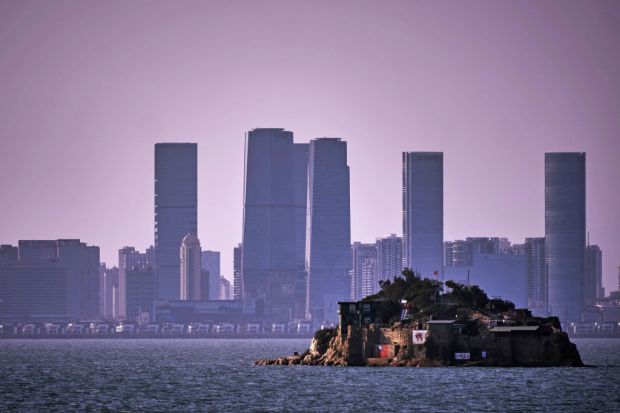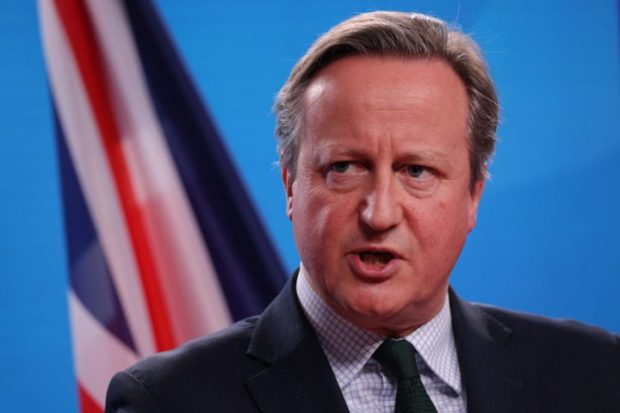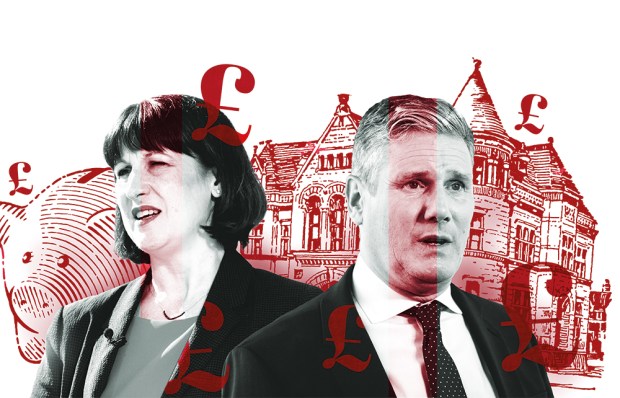When it comes to China, Dominic Raab says: ‘We can’t have business as usual after this crisis’. Business as usual is China masking the beginnings a deadly pandemic that has infected more than two million and killed 150,000 worldwide. Business as usual is Beijing covering up the existence of a new coronavirus for six crucial days and intentionally under-reporting infection and casualty rates. Business as usual is police harassment of doctors and the disappearance and presumed detention of Dr Ai Fen, who tried to alert colleagues to a new coronavirus in Wuhan. Business as usual is China restricting research into the origins of the virus and, in the estimation of international law scholar Irwin Cotler, conspiring to ‘conceal, destroy, falsify, and fabricate information about the rampant spread of Covid-19’.
It’s also business as usual in the West. Journalists rightly interrogating national governments’ management of a public health emergency are far less curious about the origin of the contagion. Even a global viral outbreak must seemingly be viewed through the dreary prism of identity politics.
Extraordinary energies have been expended on policing the language used to describe the coronavirus and to link references to a ‘Chinese virus’ or ‘Wuhan virus’ to attacks on persons of Chinese origin. Such attacks are reprehensible but they are the responsibility of those who commit them and no one else. How they must gaze in wonder in Beijing to watch us downplay their culpability for a global health crime because educated Westerners cannot bring themselves to condemn any culture bar their own. How much happier we would all be if this virus had started at a gun show in Arkansas.
It is not racist to point out China’s culpability in the spread of Covid-19. Raab has shown himself to be more hawkish than Boris — compare their responses to the elimination of Qasem Soleimani — and it is encouraging to hear him hint at a change in our relationship with the Chinese Communist Party. There has been altogether too much talk of cooperation and not enough talk of diplomatic caution. Xi Jinping’s regime is responsible for the deaths of 15,000 Britons and only a weak and neglectful government would allow that to go unpunished. The UK must begin working with its allies to formulate a schedule of sanctions that will exact justice on the Xi regime without harming the Chinese people.
Practically, though, what does no more business as usual mean? The most obvious penalty would be changing course on 5G and forbidding Huawei access to the UK network. Backbench Tories already oppose working with the Chinese technology giant for national security reasons. Giving Huawei the heave-ho would be a start but sanctions have to be severe enough that they deter a repeat of the negligence, incompetence and deceit that has put much of the developed world in lockdown. Military options are not on the table, of course. Trade sanctions would only deepen the damage already done to the economy and UN bodies like the World Health Organisation have proved they can’t — or won’t — keep China in line.
There is however one weak spot in the Chinese regime: pride. The first measure that could deter future deceit would be the introduction of a Wuhan Act modelled after the Magnitsky Act to limit the freedom of movement of key figures in Xi’s government and to seize their assets. The second sanction would be for the UK to become the champion of the Uyghurs and to encourage its allies to do the same. Raise the plight of the one million Muslims detained without trial by China at every single international summit and forum. Push for it to be on the agenda of every meeting. Organise an International Day of the Uyghur and fund one of the human rights organisations to set up and operate a centre specialising in the study of Chinese human rights abuses against Uyghurs and others. Rename Portland Place in London, home to the Chinese embassy, Tashpolat Tiyip Place, after the Uyghur academic sentenced to death for ‘separatism’.
Finally, the big one. The UK doesn’t recognise Taiwan or have diplomatic relations with the island nation. That should now change, not least because Taiwan tried to warn China and the World Health Organisation about Coronavirus. The UK should recognise Taiwan as a sovereign nation, not a region of China, establish diplomatic relations, and push for Taiwan’s admission to international bodies. This should include a campaign to repeal UN General Assembly Resolution 2758, which rubber-stamped the One-China policy, and to gain observer status for Taiwan (which, unlike full membership, China could not veto). Given Beijing’s diplomatic and economic muscle, the UN gambits would almost certainly fail but the mere spotlighting of Taiwan’s claims would infuriate President Xi. UK recognition could pave the way for the US to follow suit, which would land a rare diplomatic blow on Beijing.
The Wuhan virus is not a natural disaster that has befallen the world from out of nowhere. China was complicit in the scale of its impact. Pretending that the only issue is how Western governments have handled the crisis, or that it’s all Donald Trump’s fault, is a defence mechanism to avoid uncomfortable conversations. Ministers have to start having those conversations with the public — and not sparing us on the likely retaliations from Beijing. Popular support for the government’s measures can only last so long and when it runs out, the public will be looking for someone to blame. Give them the culprit.
Got something to add? Join the discussion and comment below.
Get 10 issues for just $10
Subscribe to The Spectator Australia today for the next 10 magazine issues, plus full online access, for just $10.




















Comments
Don't miss out
Join the conversation with other Spectator Australia readers. Subscribe to leave a comment.
SUBSCRIBEAlready a subscriber? Log in